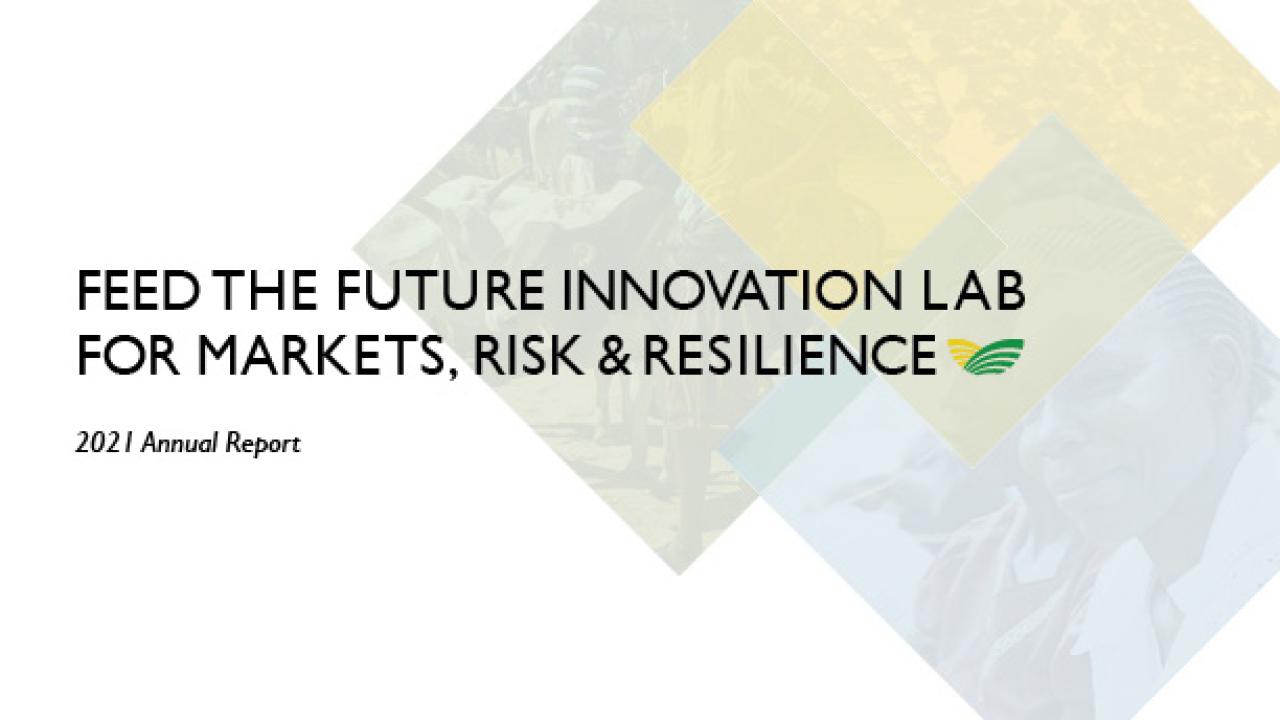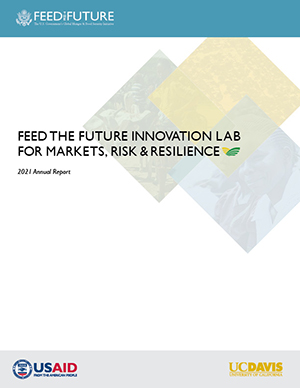
The Feed the Future Innovation Lab for Markets, Risk and Resilience at UC Davis supports large-scale field studies led by development economists and researchers in related fields to test ways to strengthen food security and resilience at all levels, from systems to individual families. Launched in July in 2019 by USAID, the lab builds upon a foundation of field studies and theoretical work to help families and communities build resilience to perennial threats like drought but also against unforeseen shocks like the COVID-19 pandemic.

In 2021 we have made significant progress in completing our research portfolio and contributed essential evidence-based insights to broader activities and discussions seeking to strengthen global food security and resilience among rural families. Like the global development community, we have continued to adapt to the challenges of the COVID-19 pandemic while increasing overall research capacity. In the coming years, our successes will create new opportunities to empower rural families.
In our second year, we have completed our research portfolio with a total of 32 awarded projects across 16 countries. Of these projects, 12 are funded through the Feed the Future Advancing Local Leadership, Innovation and Networks (ALL-IN) initiative we co-manage in partnership with the International Center for Evaluation and Development (ICED). Our portfolio includes projects that evaluate existing development programs as well as projects that test new approaches for strengthening food security and build upon the foundation of resilience measurement established by USAID.
We have expanded our collaborations across the development community while ensuring that the evidence we generate reaches stakeholders who can readily incorporate it into their work. Through publications and participation in high-level partnerships we have provided critical thought leadership in the areas of risk management, technology adoption, market development and resilience.
We have expanded our efforts to increase research capacity among African researchers and institutions through our ALL-IN. These efforts include mentorship in research and grant administration as well as a capacity development event in Ghana that supported African researchers in strengthening their proposals for future grant funding.
While systemic threats like the COVID-19 pandemic can compromise hard-won progress against food insecurity and rural poverty, field-tested evidence on how best to create opportunities for rural families provides actionable guidance on how to respond. In our experience, the deep relationships our research teams establish with governments, NGOs and the private sector are creating a ready pathway for scaling what works. In the coming year we anticipate more of these successes across the broad collaborations that make our work possible.
